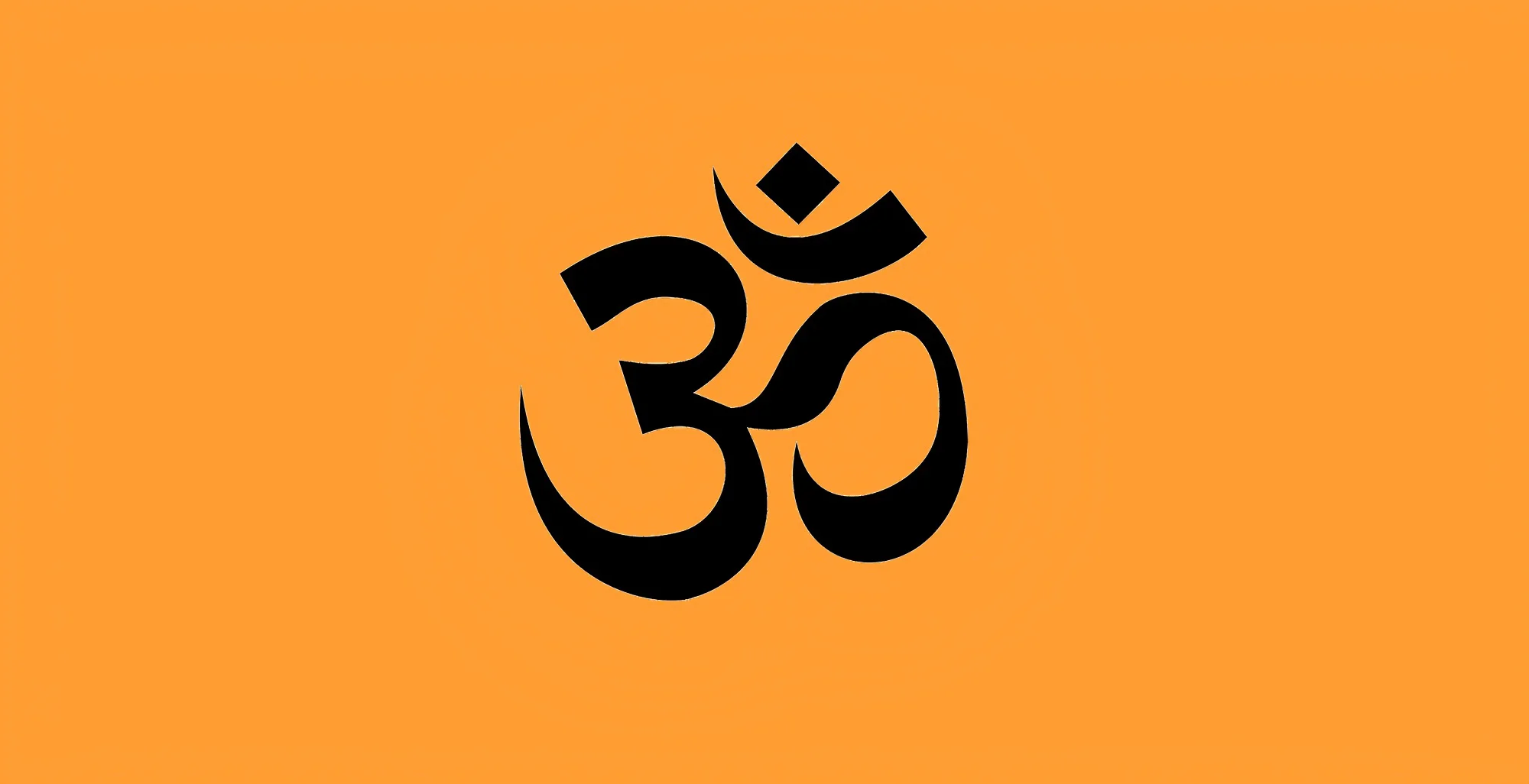Oṃ In A Dictionary

Oṃ (ॐ) is well known in the English speaking world, even outside of India. But all most of us know about it is that it’s an ancient sacred syllable with some sort of spiritual significance that some people chant either on it’s own or as part of a mantra (another ubiquitous term that is only dimly understood by most).
I’m not equipped to explain Oṃ, but I can provide it’s definition in Monier Monier-Williams’ landmark 1899 Sanskrit-English Dictionary. Here it is, using Roman script instead of the Devanagari of the original:
om ind. (√av, Uṇ. i, 141 ; originally oṃ = āṃ, which may be derived from ā, BRD. ), a word of solemn affirmation and respectful assent, sometimes translated by ‘yes, verily, so be it’ (and in this sense compared with Amen; it is placed at the commencement of most Hindū works, and as a sacred exclamation may be uttered [but not so as to be heard by ears profane] at the beginning and end of a reading of the Vedas or previously to any prayer; it is also regarded as a particle of auspicious salutation [Hail!]; om appears first in the Upaniṣads as a mystic monosyllable, and is there set forth as the object of profound religious meditation, the highest spiritual efficacy being attributed not only to the whole word but also to the three sounds a, u, m, of which it consists; in later times om is the mystic name for the Hindū triad, and represents the union of the three gods, viz. a (Viṣṇu), u (Śiva), m (Brahmā); it may also be typical of the three Vedas; om is usually called praṇava, more rarely akṣara, or ekākṣara, and only in later times oṃkāra), VS. ; ŚBr. ; ChUp. &c. [ID=40704]
(Buddhists place om at the beginning of their vidyā ṣaḍakṣarī or mystical formulary in six syllables [viz. om maṇi padme hūṃ]; according to, T. om may be used in the following senses: praṇave, ārambhe, svīkāre, anumatau, apākṛtau, asvīkāre, maṅgale, śubhe, jñeye, brahmaṇi; with preceding a or ā, the o of om does not form Vṛddhi (au), but Guṇa (o), Pāṇ. vi, 1, 95.) [ID=40704.1]
For a list of abbreviations used in Monier-Williams’ dictionary, see this Wikipedia page.
I’ve added tooltips to many parts of this: if you hover over green words in the definition, further info will pop up.
This is not intended to be more than it is, a dictionary definition of oṃ. Consult your own spiritual/practice tradition or more scholarly work such as that of Finnian M.M. Gerety
